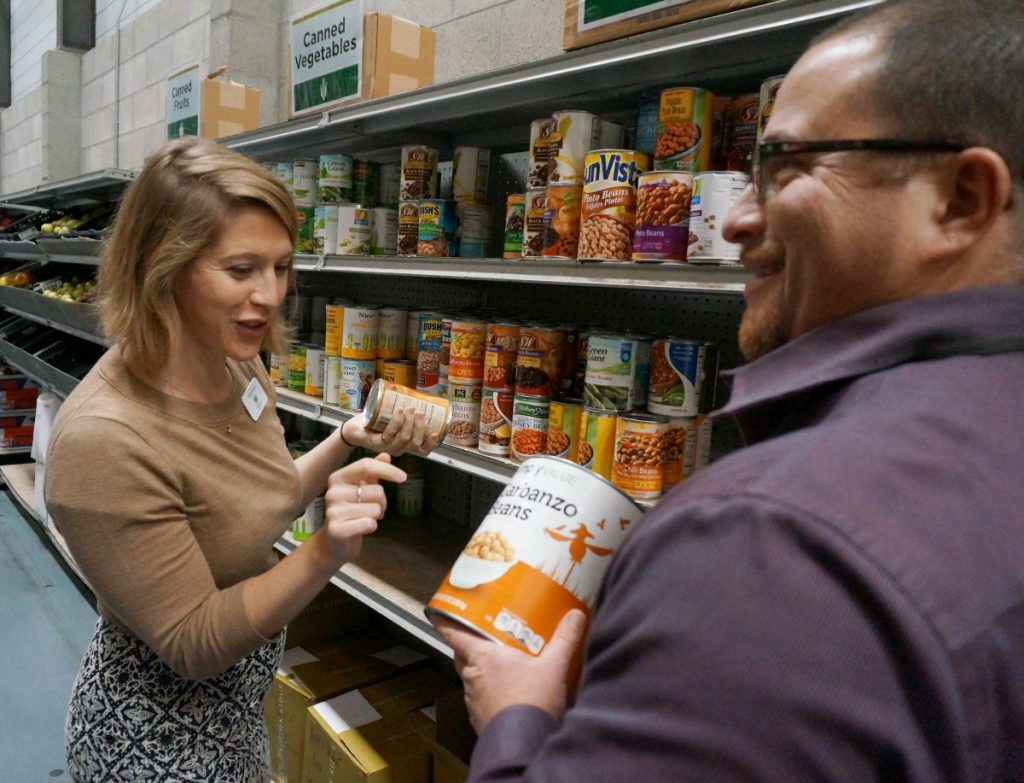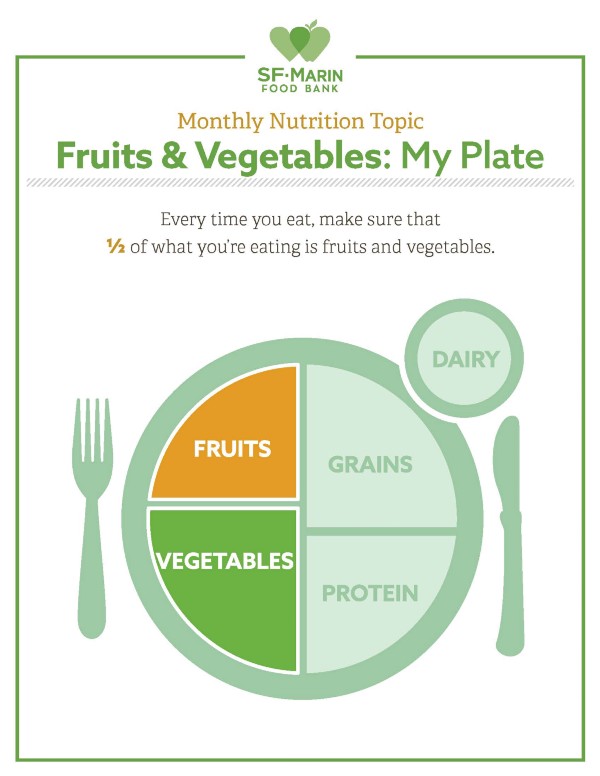“At Transitions Health Clinic, we can see that, without a doubt, eating and health go hand in hand. When we think about health — a healthy body and healthy mind — the things you eat have a direct effect on your energy and well-being.”
That’s according to Joe Calderon, a community health worker at the Transitions Health Clinic who invited the Food Bank to teach nutrition classes at the site. The clinic provides a wide variety of care for former inmates re-entering society, including primary care, health insurance, and a food pantry.
“By teaching people how to take care of themselves — how to eat — it helps them understand their self-worth.”
Some clients were incarcerated for upward of 30 years. The life skills they once had have fallen out of use, and the outside world rapidly evolved while they were away. Cooking skills and knowledge about nutrition are at the top of the list, along with taking the bus, using a cell phone, debit cards, and computer skills.

Molly Burke, the Food Bank’s nutrition education program manager, taught a three-week nutrition class at the clinic. She says participants talked a lot about what it’s like to cook on their own post-incarceration.
“Cooking has the ability to give us all the freedom to make our own healthy food choices,” Burke says. “It empowers us to treat ourselves well and take ownership over our lives and our health.”
So far, Burke has demonstrated how to make a sweet potato hash, breakfast smoothies, and hummus with foods commonly available from the weekly food pantry. The savory sweet potato hash was a hit with participants. They discussed different ways to tweak the recipe, such as adding eggs or beans and wrapping it all in a flour tortilla to make a hearty burrito.
“One of the easiest things to do after you’ve been in prison for so many years is to head straight for the ice cream and soda, and I was surprised at everyone’s willingness to taste all three of the dishes we made in the class,” Calderon says.

“A lot of people wanted copies of recipes and of the educational flyers showing, for example, proper portion sizes and how sugar affects the body. They were really very interested to learn those things.”
Calderon says he believes there’s a growing awareness about the challenges the prison system presents for inmates, and the best way to address them is one person at a time.
“We teach them how to cook right, eat right, think right, take care of their health, and get jobs. Successful re-entry saves the neighborhood.”
“What the Food Bank does with its partners, like Transitions Health Clinic, is the foundation of change. By teaching people who historically have been ignored how to take care of themselves — how to eat and how to reintegrate into society — it helps them understand their self-worth.”


Share